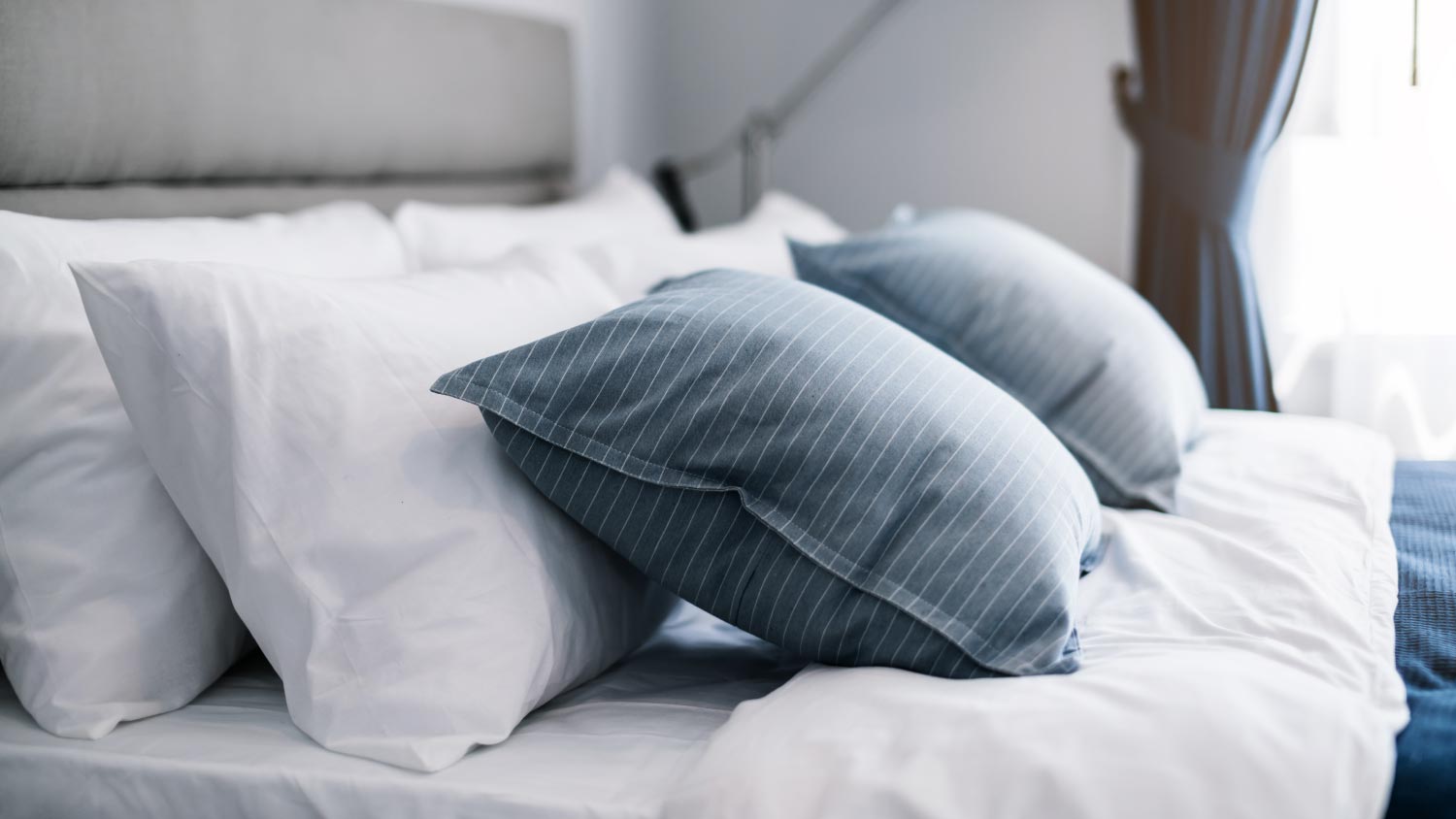4 Healthy Reasons You Should Catch Your Zzz’s in a Cold Room
Cold comfort shouldn’t be an oxymoron


Some people identify as cold sleepers and some identify as hot sleepers, but believe it or not, there is actually an optimal sleeping temperature range for all of us. For most adults, the body’s ideal sleeping temperature range is between 60 and 72 degrees Fahrenheit. Our bodies are regulated by the circadian rhythm, and while our temperature shifts throughout the day by 2 to 3 degrees, it starts to drop once nighttime falls. To allow your body to naturally cool down and get ready for bed, it’s best to sleep in a cold room, which has a number of benefits we’ve outlined below.
1. It Might Prevent Some Diseases
A study by the American Diabetes Association showed that those who slept in colder rooms might have a lowered risk of some metabolic diseases, such as diabetes. In their study, some test subjects slept in a cold room (66-degrees Fahrenheit) while others slept in a warm room (75-degrees). After four weeks, those who slept in the cold room had more brown fat, which is the good kind of fat, since it’s metabolically active. In addition, the cold room sleepers had improved insulin sensitivity and burned more calories during the day than the warm room sleepers.
2. It Reduces Insomnia
Dr. Eric Nofzinger, a professor and director of the Sleep Neuroimaging Research Program at the University of Pittsburgh School of Medicine, conducted a study in which participants (all of whom suffered from chronic insomnia) were given “cooling caps” to wear to bed, regulating the temperature of their heads. The participants not only fell asleep quicker but stayed asleep for much longer than those who did not wear the caps.
3. It Helps You Sleep Deeper
Not only does a cold environment allow you to stay asleep, but it helps you sleep deeper. According to some studies, a warm environment negatively affects REM sleep, which plays a critical role in how alert and refreshed we feel the next morning as well as our overall mental and physical abilities.
4. It Could Slow the Aging Process
Falling asleep in a room warmer than 70-degrees Fahrenheit might inhibit your body’s ability to produce melatonin, which we naturally produce less of as we age (another reason you might sleep less as you get older). Recent research shows that melatonin plays a critical role in boosting immunity and fighting free radicals.
Ways to Cool Your Room

If you’re ready to embrace the chill for a good night’s sleep, here are some tips to cool your room—and body—during the evening.
Choose a perfect pillow and the best mattress or mattress topper with temperature-regulating properties.
Run the air conditioner at a steady temperature, or keep a box fan running throughout the evening.
Swap your bedding out for a more breathable variety, such as linen or eucalyptus.
Drink water, which has a cooling effect on your body.
Keep your feet poking out under the covers, to allow heat to easily leave your body.
Sleep on lower floors; heat rises.
Keep your blinds closed during the day so the heat from the sun doesn’t build up in your room.





- Furnace Repair
- Air Conditioning Repair
- HVAC Repairs
- Furnace Installation
- Wood & Pellet Stove Repair
- Dehumidifier & Humidifier Repair
- Heat Pump Companies
- Swamp Cooler Repair
- Wood Stove Services
- HVAC Companies
- Commercial A/C Repair
- Geothermal Installation
- Air Conditioning Installation
- Boiler Repair
- 24 Hour Furnace Repair
- Geothermal Repair
- Heat Pump Repair
- Humidifier Installation
- Thermostat Repair
- Thermostat Installation
- Nest Installation
- Heating & Cooling
- Heating Repair
- Furnace Cleaning
- Furnace Tune-Up
- HVAC Technicians
- Subcontractors
- Furnace Maintenance
- Plumbing & Heating Companies
- Wood Stove Inspection
- Mini Split Installation
- Wall Heater Repair
- Duct Installers
- The Best Temperature for Sleep
- 10 Tips That’ll Help You Create a Relaxing Bedroom Environment
- What Is the Best Temperature to Set Your Air Conditioner to in the Summer?
- The Great Debate: We Settle The Perfect Indoor Room Temperature Dispute
- 10 Tips to De-Stress Your Bedroom and Get a Better Night’s Sleep
- 13 Extra Room Ideas to Help You Take Up Space
- 11 Home Addition Ideas to Personalize Your Space
- Warm vs. Cool Light: How To Make the Best Lighting Choice for Any Room
- Home Staging Checklist: 35 Tips to Sell Your Home Quickly
- Learn How to Clean Your House (and Maybe Even Have Fun Doing It) With These 27 Tips















